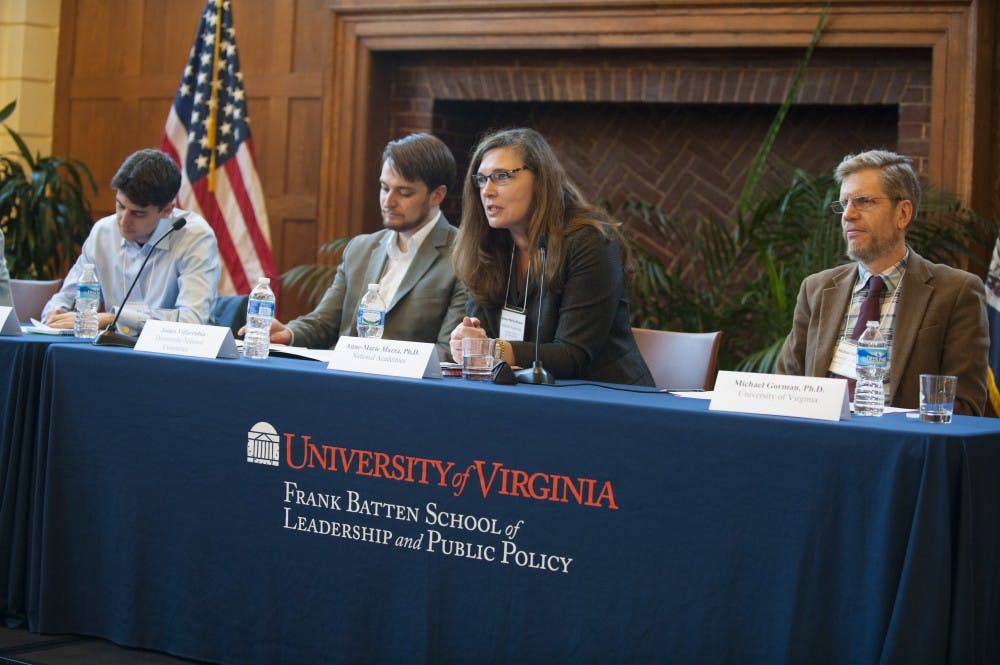The Graduate Student Consulting and Beyond Club held a panel Thursday night to discuss science and technology policy and various careers in the field. The panel, held at Garrett Hall, aimed to discuss the disconnect between the sciences and policy, how society and the government utilize technology, and the process of shaping science and technology policy decisions.
Computer Science Prof. Emerita Anita Jones moderated the panel. Panelists were able to supply students with advice and critical insights into the challenges and rewards of science and technology policy careers.
James Villarrubia, a 2008 Engineering graduate and 2009 Batten graduate who was a part of the panel, currently consults for the Democratic National Committee. He also spent part of his career as a senior technology policy analyst for the Department of Justice and as a presidential management fellow at the White House.
Villarrubia credited his success in the political sphere to his unique University education.
“The most valuable thing to learn from Systems and from U.Va. is intellectual ferocity, the willingness to dive in and become an expert even though you weren’t before,” Villarrubia said.
Villarrubia majored in both systems engineering and American government.
“[It led to my] understanding of ... the nasty, messy parts of government,” Villarrubia said. “Being able to understand what that is and the part you play in that is very valuable.”
Emmanuel Smadja, 2003 and 2006 Engineering double graduate, spoke to the benefits of studying in a community which has a diversity of interests.
“More than just the classes, it’s the people you’re surrounded by,” Smadja said. “We’re very lucky to have [that] sort of cross-pollination with people in different studies.”
Sometimes, however, there is a disconnect between science and policy which makes work in the field difficult, said Anne-Marie Mazza, director of the Committee on Science, Technology and Law at the National Academies.
“If you were to ask me how policy works, it is slow, it is very frustrating, but at the end of the day, it is very rewarding,” Mazza said.
Michael Gorman, director of the University’s Science, Technology and Society program, emphasized that slowness is not always a bad thing.
“When I talk about the slowness of things, I’m not talking about the slowness of the peer-review process,” Gorman said, “There is a real value to careful decision-making.”
Second-year Engineering student Ryan Tasker-Benson said hearing about panelists’ own educational and professional histories would help inform his academic choices for the future.
“It was great to get some insights into what they do and what their educational background was, because from our perspective … what do you do with that education?” Tasker-Benson said.







